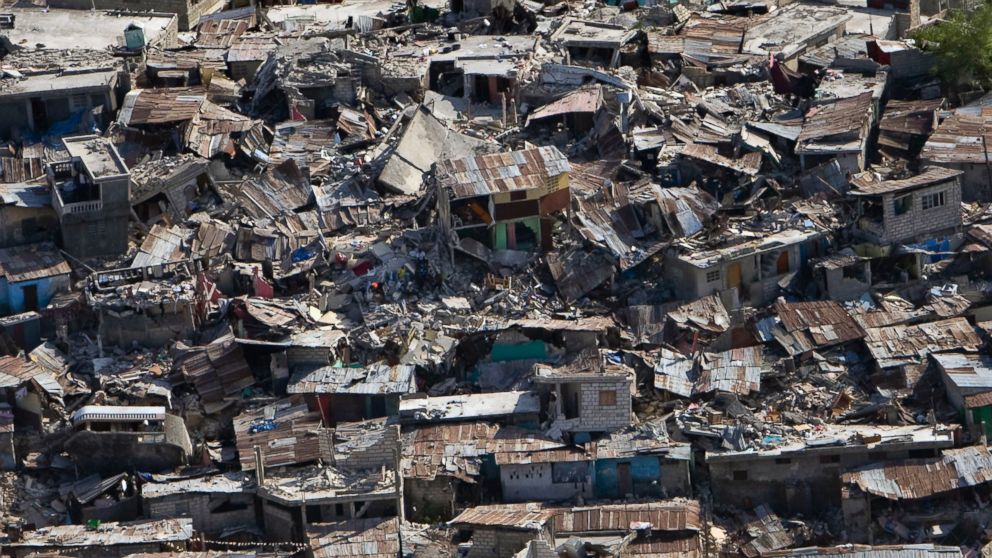Haiti Earthquake: 5 Years Later, Country Still Feeling Aftershocks
— -- Today marks the fifth anniversary of the 7.0 magnitude earthquake that devastated Haiti, killing more than 300,000 people according to estimates by the Haitian government. Tens of thousands of homes, businesses, schools and government buildings were leveled, with roughly a quarter of all the country’s civil servants killed and much of its public infrastructure destroyed.
Five years later, we returned to see how Haitians are recovering, and while the country is still feeling the aftershocks of that natural disaster, it has also made significant progress.
Haiti is often cited as the poorest nation in the Western hemisphere with roughly 60 percent of its population living on less than $2 a day. Despite this severe blow to an already struggling economy, an overwhelming majority of the 1.5 million people left homeless by the quake have been resettled. Thousands of new homes as well as hospitals, schools and roads have been built.
Pope Names New Envoy to Haiti on 5th Quake Anniversary
"There have been several successes since the earthquake,” said Sophie de Caen, the senior country director of the United Nations Development Program in Haiti. “Over 88 percent of children are going to school, we’ve seen improvement in the weight of children, and we’ve seen a drastic improvement with some aspects of housing and civil protection."
From a school rebuilt with help from UNICEF to a pioneering community for children with disabilities run by Partners in Health, we found a country bouncing back from catastrophe.
But the work is not over and the need for international assistance remains. Ayiti, as this island nation is called in the native Creole, faces critical challenges, including 85,000 people still living in camps for those displaced by the quake, a cholera epidemic that is infecting thousands of victims a year, and rising political turmoil.
A series of anti-government protests, some of them violent, have broken out in Port-au-Prince with demonstrators criticizing a lack of economic development and calling for Haitian President Michel Martelly and parliament to hold long-delayed local elections in 2015.
“Having those elections, free fair elections, a functioning parliament and eventually voting for a new president – we need to have this process done in a peaceful manner," said de Caen. “When you look at issues of poverty here… we’ve seen a lot of growth in the last five years and we don’t want to go back."




